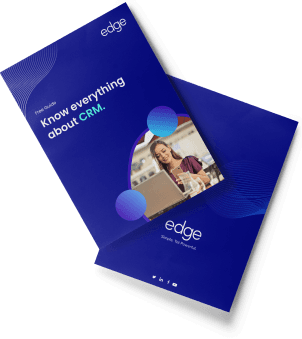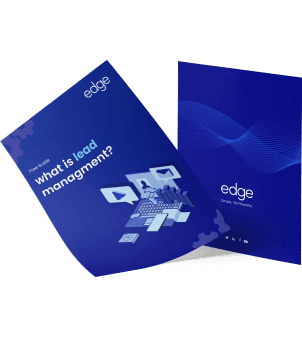Table of Contents
1. Introduction
2. What is CRM - Customer Relationship Management Software?
3. The Rise of CRM Software in 2024
4. Why is CRM Software essential in 2024?
5. Selecting the Best CRM Software in 2024
6. A Detailed Analysis Of The Best CRM Software in 2024
7. Customized CRM Software for Different Niche Markets
8. Conclusion
Introduction
In this competitive marketing, running your business smoothly, finding leads, and converting them into sales is most difficult without the right strategy. Due to digitization and cross-border business operations, managing customer relations has become challenging for businesses. CRM software helps build a customer-centric strategy with an approach to informed and analytical decision-making.
The best customer relationship management software allows companies to stay ahead by managing customer relationships. A CRM management tool can help companies streamline their sales processes, track customer interactions, and improve overall customer satisfaction.
As we enter 2024, the CRM software market has many contact relationship management software options offering state-of-the-art solutions. These options are all made to meet the complex requirements of companies looking to improve their customer relationship management tactics. With this extensive guide, you will understand the best CRM software, the important aspects of CRM, CRM for sale, and the best overall customer relationship software.
What is a CRM - Customer Relationship Management Software?
CRM stands for "Customer Relationship Management," a technology for monitoring, managing, and improving customer relationships with a customer-centric approach and the straightforward objective of enhancing business relations. It interacts with current and potential clients and records all communications with them. It makes it easy for a business to have customer data handy. A CRM helps a business connect all the dots and collect data, starting with sales leads and customers, all communications, quotes, purchases, and tasks associated with each lead and client. It helps your team access this data as and when required.
CRM collects data from various platforms, including social media, email marketing, live chat, phone conversations, personal interactions, feedback forms, and more. Front this data and other information. It also uses data analysis to analyze the buying habits, trends, and customer needs.
The Rise of CRM Software in 2024
Over the years, CRM technology has shown a drastic advancement. From a simple contact management system to advanced managing software for converting leads and managing the whole business, an AI-powered system that offers unique automation, predictive analysis of the data, and customized customer-centric strategies, CRM software has changed the landscape of customer relationship management aspects.
In 2024, the era of AI integrations and machine learning technologies in CRM systems has set the bar higher than before with customized customer-centric approaches and efficient and smooth sales processes.
Why is CRM Software essential in 2024?
CRM software is the most important component of any business, irrespective of its industry. CRM software has become the backbone of customer interaction strategies for any company operating in any industry. The right customer relationship management platforms offer various ways to improve their business:
Joining the dots to combine information of customers across multiple touchpoints
Customization of customer experience
Simplifying the process of sales, marketing, and customer service
Improving customer satisfaction
Boosting business expansion with informed decision-making
How to Choose the Best CRM Software in 2024?
While choosing the apt CRM software, considering your business needs is of utmost importance. Current requirements, plans, and features that maximize the return on customer relationship management efforts must be studied thoroughly. The following factors may help you with this:
Integration abilities: A holistic view of customer interaction is vital for seamless connectivity with existing business systems (e.g., Email Marketing, Social Media platforms, and ERP).
AI and machine learning: Tailored marketing efforts, sales forecasting, and customer targeting might be significantly impacted by advanced analytics and predictive insights.
Personalization and flexibility: The CRM software can be customized according to a specific business operation with the help of customization features available for workflows, fields, and interfaces.
The ability to scale: A CRM should be scalable in growing businesses with increasing users and a more extensive data set without compromising efficiency.
Security and compliance: Picking a CRM that provides robust security features and compliance with pertinent regulations is essential, given the increasing worries around data privacy.
Read more: What data should you be collecting in a CRM?
All technology makes your business most powerful and improves your customer base. Integrating new technologies in your business not only makes your business successful but also makes it technically powerful.
Which Is The Best CRM Software in 2024?
Let's have a detailed evaluation of the best business CRM software, what they offer, how they're unique, and how they'll fit your business needs.
1. Salesforce
Salesforce stands out as one of the foremost names in the CRM industry, recognized for its extensive suite of tools catering to workflow automation and analytics tracking. Moreover, they provide an AI assistant in select plans, facilitating tasks such as lead scoring and deal health assessment alongside other functionalities.
While Salesforce offers a comprehensive solution, its complexity is undeniable. The array of plans and add-ons available can often be overwhelming to navigate. In many cases, larger teams must designate a dedicated individual solely responsible for managing Salesforce. While investing in such resources can be beneficial if available, it's worth contemplating.
Key Features:
Full range of applications for marketing, sales, customer support, etc.
Predictive analysis through Einstein AI.
Workflow automation.
Customized customer engagement.
Enhanced efficiency.
Data-driven decision-making.
Scalability.
Seamless integration.
Best For Businesses looking for an all-in-one, scalable CRM solution with advanced analytics and extensive integration capabilities.
2. Hubspot CRM
HubSpot's CRM offers a perpetual free plan, allowing unlimited users and contacts. However, there's a caveat to the "unlimited contacts" feature: each account can accommodate up to one million contacts due to technical constraints. Nevertheless, sifting through such a vast database could easily span a decade or two, contingent upon the volume of lead generation activities within your organization.
Under the free plan, there's a single pipeline available, with no option to create additional ones. However, HubSpot compensates for this limitation by enabling users to craft customized dashboards and generate tailored reports. These reports provide insights into various analytics, including marketing campaign performance, website traffic analysis, CRM activity analysis, and form performance.
Key Features:
Sales, marketing, content management, and customer service tools are offered.
All-in-one platform for various business functions.
Seamless integration with the Hubspot ecosystem.
Enhances inbound marketing strategies.
A comprehensive suite of integrated solutions.
Best For SMEs finding cost-effective CRM solutions with solid marketing and sales capabilities.
3. Zoho CRM
The free version of Zoho CRM includes provision for up to 5,000 records, encompassing contacts, deals, accounts, and campaigns. It's important to note that every new entry contributes towards this limit. However, a notable feature is the option to remove untouched records, potentially extending the longevity of the free plan.
The user interface exudes an enterprise-grade ambiance, featuring a prominent top-level menu for seamless navigation across all app sections. Users can access a comprehensive overview of their contacts, offering a 360-degree view of their data, including the ability to schedule optimal times for communication, thereby enhancing customer engagement. Zoho CRM also excels in its reporting and analytics capabilities, providing access to over 60 pre-built reports for quick data insights.
Key Features:
Conversational AI
Predictive Analytics
Automation
Sales & Marketing Enhancement
Omnichannel Communications
Best For businesses of all sizes looking for an affordable, AI-powered CRM solution.
4. Microsoft Dynamics 365
Dynamics 365 stands out for its exceptional integration with Microsoft's suite of products and its capability to address both CRM and ERP needs. This makes it ideal for businesses seeking a comprehensive solution that seamlessly integrates sales, customer service, and operations functionalities.
What sets Dynamics 365 apart is its seamless integration with various Microsoft applications, allowing for smooth data flow and collaboration across different departments and functions within an organization. This deep integration enhances productivity and efficiency by providing users with familiar tools and interfaces they are already accustomed to using.
Key Features:
Modular Applications for field service, sales, customer support, etc.
AI-driven Insights for more intelligent decision-making.
Uniform Data Model for seamless integration.
Streamlined Business Operations for enhanced efficiency.
Best For Large companies and firms with significant investments in the Microsoft ecosystem need an amalgam of ERP and CRM features.
5. Pipedrive
Pipedrive is a sales pipeline management tool designed to assist businesses in monitoring their sales cycle and advancement. Operating as a cloud-based solution, it offers accessibility from any device, rendering it particularly suitable for companies with distributed sales teams.
Its features include customizable pipelines, sales functionalities, email integration, and activity tracking capabilities. It is a favorite among SMEs due to the opportunity to raise its user-friendly features and sales productivity.
Key Features:
Visual sales pipelines
Email integration
Automation tools
Performance statistics
Best For SMEs wanting to focus on streamlining the sales processes and pipeline management.
6. edge CRM
edge CRM is an excellent tool that helps businesses manage their customer relationships. It was made by people who know much about sales and what companies need. It's designed to be easy to use and can be customized to fit any business, whether big or small.
One of the best things about edge CRM is that you can change it to suit your business perfectly. Whether you run a small local shop or a huge company, edge CRM can be adjusted to fit what you need. And because sales experts created it, you know it's reliable and understands the problems sales teams face.
Key Features:
Customizable for businesses of all sizes.
Developed by sales professionals for industry-specific insights.
AI-driven lead qualifier for optimized lead management.
Cloud-based data collection ensures accessibility and security.
Offers 256+ actionable reports for enhanced productivity.
Mobile apps enable on-the-go access to data.
Comprehensive calendar integration for streamlined scheduling.
Best for: Modern sales teams seeking a customizable CRM solution with AI-driven efficiency and robust reporting capabilities.
7. Close CRM
Close is a specialized sales engagement CRM tailored to the needs of small and medium-sized businesses, with a primary focus on streamlining the lead conversion process to drive revenue growth. One of its standout features is built-in call coaching functionality, a valuable tool for sales leaders. This feature provides personalized guidance and insights during sales calls, empowering sales teams to improve their performance and effectiveness.
Designed with the unique challenges of SMBs, Close offers a user-friendly interface and intuitive workflows, making it easy for teams to manage their sales activities efficiently. Its cloud-based nature ensures accessibility from any device, providing flexibility for businesses with remote or distributed sales teams.
Key Features:
Call assistants
Workflows
Task reminders
Power dialer
Best for small and medium businesses looking for user-friendly and functional CRM software.
8. Monday Sales CRM
Monday CRM software represents a fully customizable, no-code sales platform consolidating the entire sales cycle. Notably, it boasts a distinctive feature known as the deal stages widget, which offers users a comprehensive 360-degree perspective on their opportunities. This functionality enables users to visualize and manage every stage of the sales process seamlessly, from initial contact to final closure.
By leveraging this platform, businesses can tailor their sales workflows to suit their specific needs and preferences without requiring any coding expertise. This flexibility ensures the CRM aligns perfectly with each organization's unique processes and objectives. Moreover, the centralized nature of the software streamlines collaboration and communication among sales teams, fostering greater efficiency and productivity.
Key Features:
Easy customization without development assistance.
Automatic lead assignment, reminders, and email notifications.
360-degree view of sales opportunities with the deal stages widget.
Best For small and midsize businesses looking for affordable yet effective sales CRM software.
9. SugarCRM
SugarCRM is a comprehensive platform that unites sales, marketing, and service teams within a single ecosystem to elevate productivity, enhance engagement, and drive revenue growth. This cloud-based web application facilitates seamless interactions with potential and existing customers, empowering organizations to forge stronger relationships and deliver exceptional experiences.
SugarCRM streamlines collaboration and communication across departments by centralizing essential functions such as sales, marketing, and service, fostering synergy and alignment toward common goals. This integrated approach enables teams to work more efficiently, leverage shared insights, and coordinate efforts to deliver personalized and timely engagement at every touchpoint along the customer journey.
Key Features:
AI engine for lead conversions, Ideal Customer Profiles (ICP), and sales predictions.
Tailored solutions for sales and marketing processes.
Automation of sales and marketing tasks for enhanced productivity.
Best for large businesses with in-house development teams.
10. Engagebay
EngageBay is primarily a CRM solution encompassing many features, including sales, marketing, customer support, and chat functionalities, all available under a freemium plan. However, the flexibility provided by this comprehensive package comes with a limitation: the free plan only allows for up to 250 contacts on the platform, necessitating the consideration of archiving inactive contacts to prolong usage.
Adding contacts is straightforward, offering all the essential fields for information input. The intelligent lists feature stands out, enabling users to segment contacts by selecting specific filters. This feature automatically updates the list with contacts that meet the defined conditions in the future, streamlining contact management tasks. Additionally, the visual sales pipeline feature facilitates intuitive management of deals, allowing users to progress deals by dragging and dropping them forward. Moreover, EngageBay allows for creating multiple pipelines, providing flexibility in tracking various aspects of the sales process—a feature not commonly found in other platforms.
Key Features:
It needs to be a more complicated and easy-to-use interface.
Simple pricing model suitable for businesses with budget constraints.
Best For small businesses seeking to view all notes, files, tasks, events, and pipeline information related to a contact on one screen.
Customized CRM Software for Different Niche Markets
In 2024, the CRM market will showcase a rise in specialized solutions for different niche markets. It will offer customized tools and workflows that address the unique challenges of various industries.
The best cutting-edge CRM is the edge CRM. It provides the best business professionals with lead management, marketing tools, and connectivity with businesses worldwide.
Salesforce Health Cloud is a CRM designed to manage patient relationships, ensure compliance, and create care plans for healthcare providers.
Blackbaud's Raiser's Edge NXT is an example of a CRM developed particularly for nonprofit organizations. It provides tools for fundraising, engagement tracking, and donor management.
Read More: Best CRM for small business in 2024
Conclusion
In 2024, CRM options will be more potent than ever. Whether your business needs a simple, easy-to-use platform or a complex management system, there's a solution to every need. You can choose the best CRM software by focusing on the key features that match your business requirements and goals.
Remember, the best CRM software is the one that fits seamlessly with your business processes, scales with your growth, and enables you to convert customer interactions into lasting relationships.













